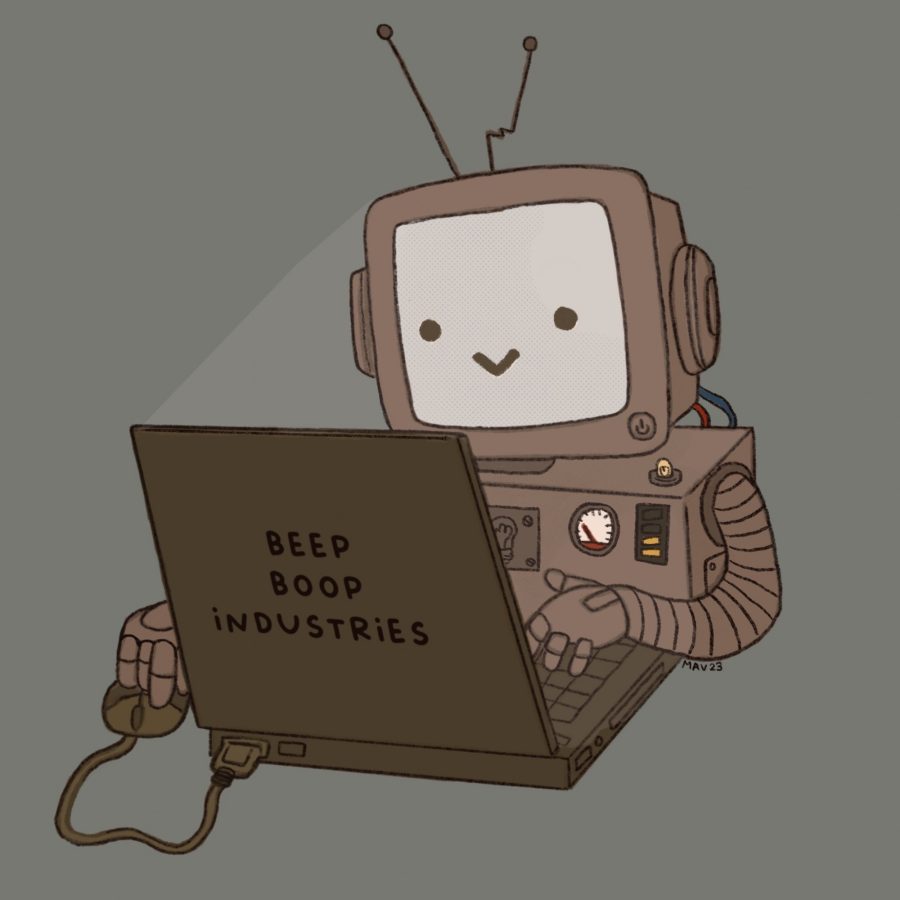
Today, the Internet is moving at the same pace as usual. Some images or videos may take an extra few seconds to load, or maybe Google didn’t find the specific link you’re looking for, but it seems to be running smoothly.
Everyday life on the Internet is a constant because of something called “net neutrality.”
“[Net neutrality means] all data on the Internet should be treated alike — your [ISP] should transmit information at the same speed and priority, whether it’s Netflix or Hulu, email or LOLcats,” expalained Derek Bambauer, a professor at the James E. Rogers College of Law.
Currently, however, net neutrality is coming under siege in Washington. Policy makers and Internet Service Providers are trying to take away the freedom of free data on the Internet, which is why college students need to be educated on net neutrality and to fight to keep the Internet a free place.
Last year, Federal Communications Commission chairman Tom Wheeler released a plan that would have allowed very large companies like Comcast or AT&T to create paid Internet fast lines and discriminate against specific websites online.
However, after public outrage, Wheeler decided earlier this month that he actually wants to give Internet users the most protection possible by basing new net neutrality rules off of Title II of the Telecommunications Act of 1996.
Wheeler explained that he became convinced “that this relatively new concept might, down the road, be interpreted to mean what is reasonable for commercial interests, not consumers.”
Today, the FCC will vote on Wheeler’s new proposal, and it could potentially mean one of the largest victories for those who have been fighting to protect the free Internet.
With American’s media-fueled futures on the line, why is it that many people are not familiar with net neutrality?
Bambauer said he believes that many college students and average adult Americans are not familiar with net neutrality because it seems complicated and boring.
“After just a paragraph or two about Title II or Section 706 or Deep Packet Inspection, most people are heading for The Onion,” Bambauer said.
He also added that while both sides of the debate are good at portraying the consequences of their positions, they have not “done a good job of explaining the basic mechanics of how the Internet works today, or the high-level explanation of how the government regulates Internet access and routing.”
Both sides of the net neutrality argument believe that their path is the best way to drive deployment of quicker Internet connects and cool new devices, Bambauer said. And because the U.S. is a “global leader in Internet-related innovation” the stakes in this debate are very high.
Everyone is affected in this debate: rural families, college students, online education, the government, large corporations, small companies and ISPs.
Net neutrality won’t just slow down a Netflix connection; it could affect whether the area where you live will even receive broadband access.
In light of the big vote, you should probably keep your fingers crossed and as many tabs up on your browser as possible.
_______________
Trey Ross is a journalism sophomore. Follow her on Twitter.








